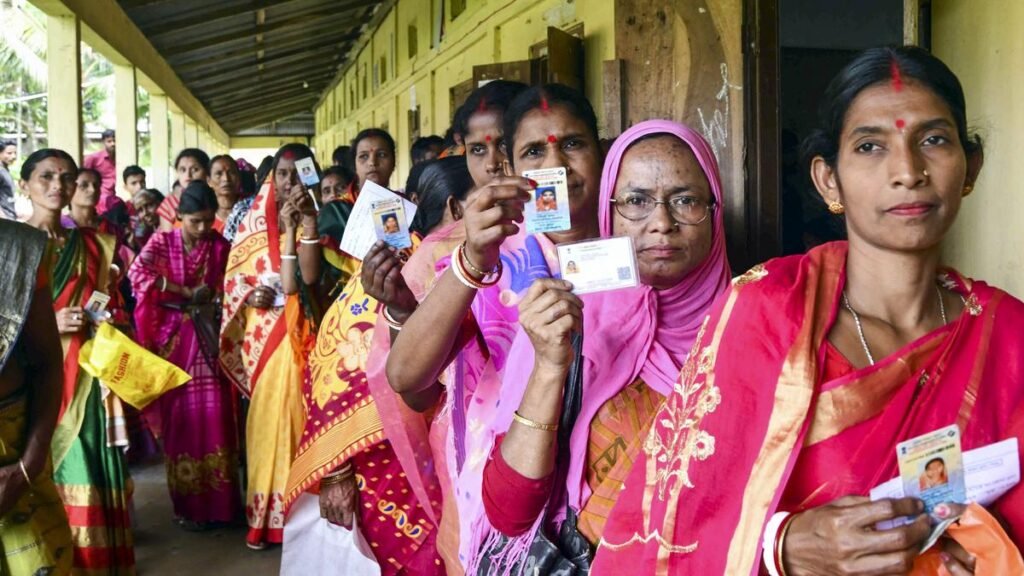Hindu candidate has won a Panchayat election in a ward predominantly populated by Muslim voters in Sribhumi district, Assam. This victory, seen by many as a symbol of communal harmony and voter maturity, defied conventional political expectations in the region.
The winning candidate, Rajesh Das, contested from Ward 4 of the Chandbari Gaon Panchayat and secured an overwhelming majority despite the demographic composition being nearly 90% Muslim. His campaign was marked not by religious rhetoric, but by a focus on development, inclusive governance, and a commitment to solving local issues that affect all residents irrespective of their faith.
Residents of the area revealed that Das built his popularity by working tirelessly on issues like drinking water scarcity, bad road conditions, and poor health infrastructure. Over the past three years, even before the elections were announced, he had mobilized local volunteers to clean drains, repair tube wells, and assist the elderly in accessing government benefits. His reputation as a man of action, rather than just promises, helped him gain the trust of the Muslim-majority community.
Local voter Rehmat Ali, a shopkeeper in Chandbari Bazaar, said, “We did not vote for a Hindu or Muslim. We voted for someone who has helped us when no one else did. Rajesh bhai came to our aid during the floods last year. He stayed with us, got medicines and food delivered when we had lost hope.” His sentiments were echoed by other residents who highlighted Das’ accessibility and dedication.
Political observers say this outcome challenges the usual identity-based voting patterns often seen in many parts of the country. Instead, voters here prioritized development, work ethic, and community engagement over religious or party affiliations. This outcome is being hailed as a step forward in the ongoing struggle against communal polarization in Indian politics.
While Das ran as an independent candidate, he had support from youth groups and elders in the village who wanted a change from the traditional party-based politics. His opponent, backed by a major regional party, focused more on identity-based issues, which, according to locals, felt out of touch with their day-to-day struggles. Voters also expressed disillusionment with candidates who only visit during election time.
Rajesh Das, in his victory speech, expressed gratitude to all voters, calling the result “a testament to unity beyond religious lines.” He said, “Today, the people of Chandbari have shown the nation that we can rise above communal divisions. I will work harder than ever to serve every family in this ward, whether Hindu, Muslim, or any other community.”
Assam Chief Minister Himanta Biswa Sarma also took note of the result, praising the people of Sribhumi for making a mature and progressive choice. In a social media post, he wrote, “This victory sends a powerful message — that development, compassion, and dedication will always win over division. My congratulations to Rajesh Das and the people of Ward 4.”
The election commission officials also noted that the polling process in this ward was peaceful, with over 82% voter turnout — one of the highest in the district. No complaints of malpractice or disturbance were reported, further highlighting the civic commitment of the area.
Sociologists studying voter behavior say that this event could become a model for other parts of India where elections are often marred by religious or caste tensions. According to Dr. Sanjib Deka, a political analyst based in Guwahati, “The Sribhumi result could influence political strategies in future elections. It proves that when given genuine candidates who are connected to the people, voters can and do look beyond identity.”
As Rajesh Das prepares to assume office, he faces the challenge of meeting the high expectations of his diverse constituency. But for now, his victory stands as a powerful reminder that grassroots efforts, empathy, and unity can overcome even the most entrenched societal divides.
Take a look for more such relatable articles:

